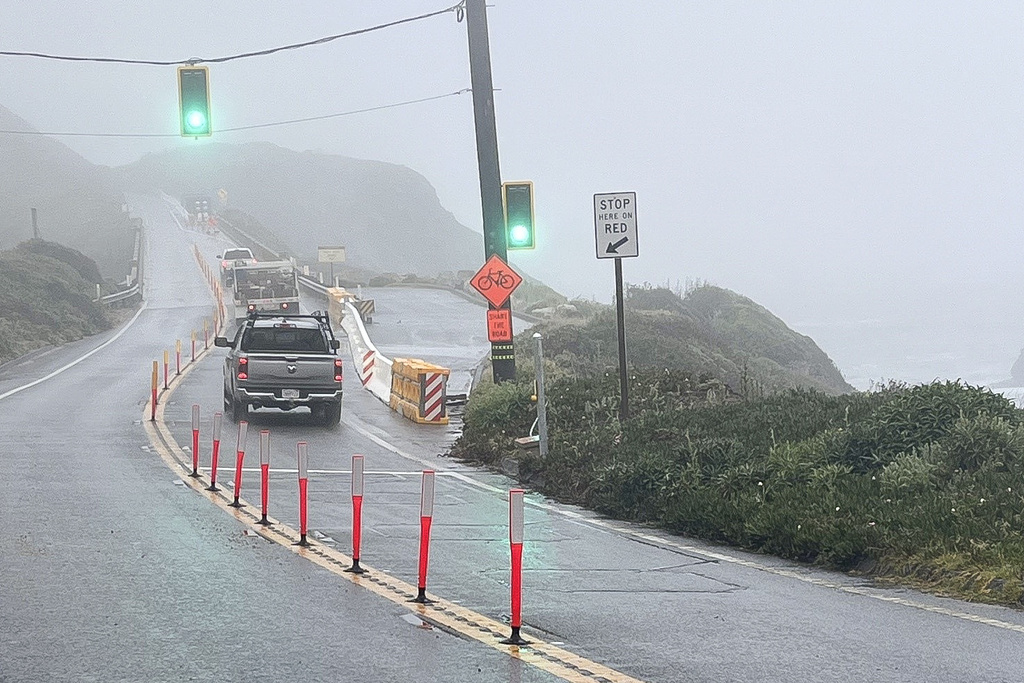BIG SUR — A section of California’s scenic Highway 1 leading to the famous Big Sur coast reopened to around-the-clock traffic Friday after stabilization of a storm-triggered rockslide that dropped a chunk of one lane into the ocean and hampered tourism.
The gap has yet to be closed, but after placement of steel and concrete into the cliff, a temporary signal system was activated to allow alternating north-south traffic on the undamaged lane, according to the California Department of Transportation.
The reopening came eight days ahead of schedule and just in time for summer travel.
“Highway 1 is the jewel of the California highway system and our crews have been working non-stop for the last month and a half so Californians can have unrestricted access to this iconic area of our state,” Caltrans Director Tony Tavares said in a statement this week.
Big Sur is a 90-mile (145-kilometer) stretch of the state’s central coast where misty, forested mountains rise up from the ocean. Much of the highway is perched high on cliffs, presenting dramatic views.
Related Articles
Shuttered section of Highway 1 near Big Sur to reopen Friday
Highway 1 repair work near Big Sur hampered by winds
Big Sur International Marathon: First timers Ricci and Bilo bring home titles
Highway 1 closure: Public can convoy in and out of Big Sur starting today
Big Sur Highway 1 repair work hitting its stride
Highway 1 is normally a must for California visitors traveling between Los Angeles and San Francisco, but the approach to Big Sur from the south has long been blocked by previous landslides requiring massive repairs, leaving the approach from the north as the area’s lifeline.
After heavy rains, a rockslide south of Monterey on March 30 caused about 6 feet (nearly 2 meters) of the southbound lane and a retaining wall that supported the highway to fall about 170 feet (52 meters) to the ocean below.
Caltrans determined the other lane was usable, but traffic was limited to twice-daily convoys in and out of Big Sur. Initially, only residents and essential workers were allowed to join the convoys. A crane had to be removed each time to make room for the convoys, said Kevin Drabinski, a Caltrans spokesperson.
In April, Kirk Gafill, president of the Big Sur Chamber of Commerce, told the San Francisco Chronicle that total losses to Big Sur businesses since the slide were exceeding $1 million a day.
A permanent repair to the highway is being designed and is expected to be completed in spring 2025, Caltrans said.


